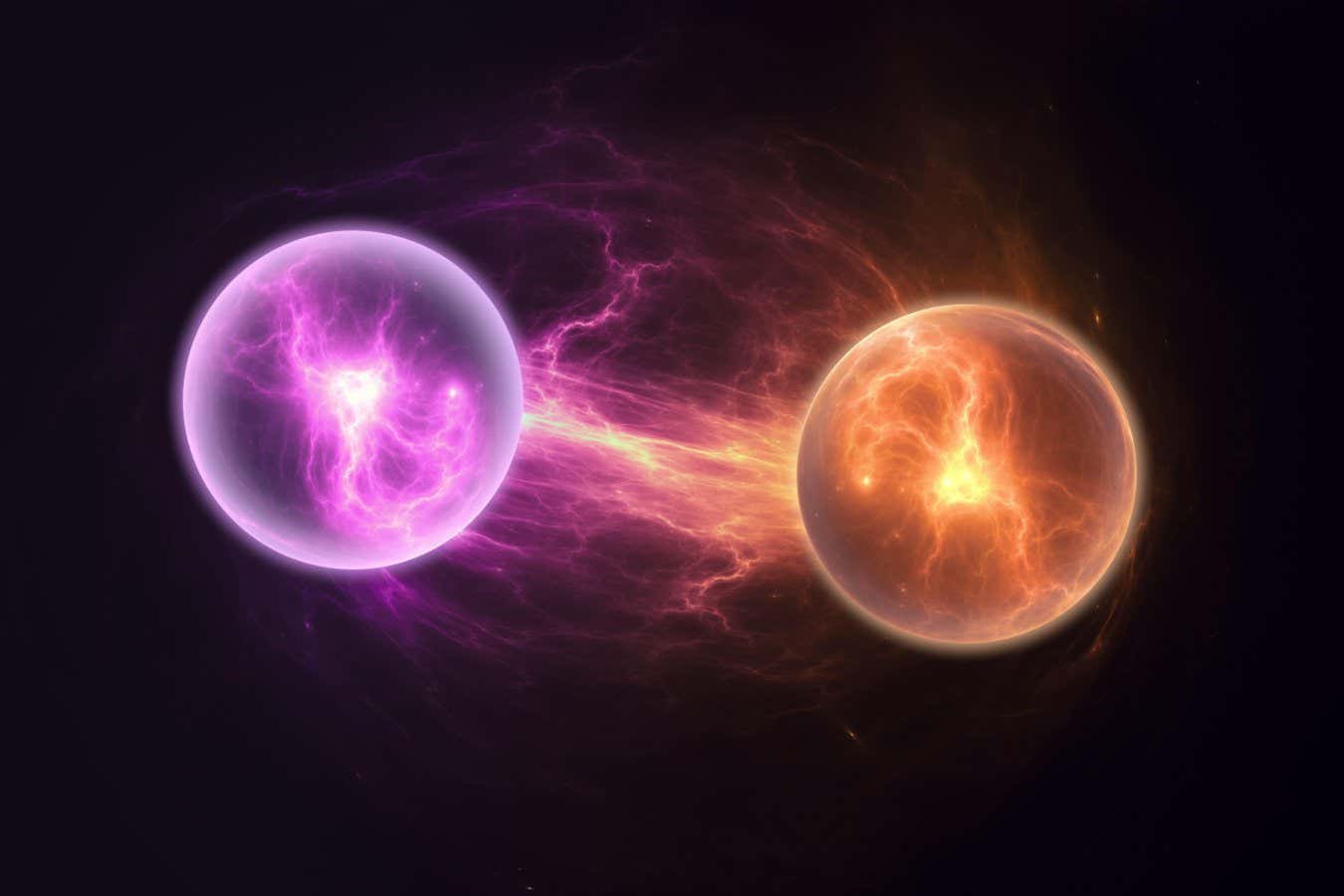
Quantum entanglement can be treated as a shareable resource
Peter Jurik/Alamy
Quantum entanglement, an inextricable link between particles, is an important resource for quantum computing and communication – and in some cases, it may also be a resource that can be shared nearly indefinitely.
Many quantum calculations – such as transferring very securely encrypted quantum information or running calculations on quantum computers – require the entanglement of some number of particles. While there are standard ways for doing this, Ujjwal Sen and his colleagues at the Harish-Chandra Research Institute in India wondered whether entanglement, instead of being produced from scratch, could be shared.
“We thought of a scenario where someone, like money or sweets, has a lot of it and is willing to share it with children or subordinates or just some others,” he says.
To address this scenario, he and his team developed a mathematical model where two hypothetical experimenters, called Alice and Bob, share entanglement. For example, each experimenter might have a particle, and those two particles would be entangled. The researchers then considered another pair – Charu and Debu – who urgently need entanglement, but can’t produce the property by themselves.
Their calculations showed that, if Charu has a particle that interacts with Alice’s particle and the same is true for Debu and Bob, then the first pair can pass on some of their entanglement to the second. Kornikar Sen, who is also at the Harish-Chandra Research Institute, but isn’t related to Ujjwal Sen, says that the situation is similar to Charu and Debu not being able to interact with each other, but both being able to tap in to the same “entanglement bank”.
In fact, she and her colleagues calculated that this entanglement-sharing procedure could be adapted to work for infinitely many successive pairs of experimenters that can’t generate their own entanglement. Ujjwal Sen says that when the team started the calculation, he didn’t anticipate that entanglement could be shared with any particularly large number of pairs, so this finding was unexpected.
The team also pinpointed exactly how the experimenters would have to adjust the procedures they would perform on their particles to make this sharing process possible, for instance how Alice’s particle would pass on some of its quantum properties to Charu’s. However, these specific methods haven’t been experimentally tested yet.
Chirag Srivastava, also at the Harish-Chandra Research Institute, notes that each new pair of experimenters receiving entanglement from Alice and Bob would get a slightly smaller amount, because some entanglement would be lost in every interaction.
Because of this, though the sharing process can mathematically go on forever, in practice it would eventually stop because some experimenters would receive too little entanglement for it to be useful.
When exactly this would happen – and how this procedure may stack up against other ways in which several experimenters can receive entanglement from one central location – remains an open question. It could be addressed through future experiments.
Topics:
Source link : https://www.newscientist.com/article/2490038-we-may-be-able-to-share-quantum-entanglement-nearly-infinitely/?utm_campaign=RSS%7CNSNS&utm_source=NSNS&utm_medium=RSS&utm_content=home
Author :
Publish date : 2025-07-28 17:00:00
Copyright for syndicated content belongs to the linked Source.














